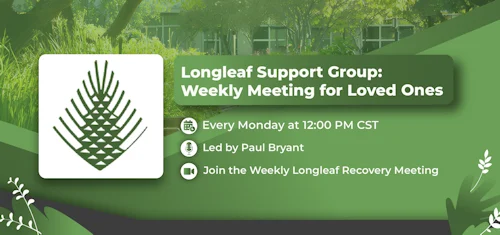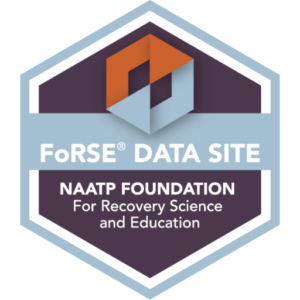Maybe you’ve decided tonight is the last time you’ll drink, or someone you love just announced they’re quitting alcohol on their own starting tomorrow. Before anyone takes that step, there’s something critical to know: stopping alcohol suddenly can be dangerous—sometimes even deadly.
This article explains why quitting cold turkey carries serious risks, what withdrawal symptoms look like, and how to stop drinking safely with medical support.
Is it dangerous to stop drinking cold turkey?
Maybe you’ve been drinking for years and finally decided enough is enough. Perhaps someone you care about has been trying to quit on their own. Or possibly you’re just starting to wonder if stopping suddenly is really as simple as it sounds.
Here’s what you’re facing: Yes, quitting alcohol cold turkey can be dangerous—sometimes even deadly. According to the National Institute on Alcohol Abuse and Alcoholism, about 5% of people going through alcohol withdrawal develop something called delirium tremens, a condition that can kill you without medical treatment.
The danger comes from how alcohol changes your brain. When you drink regularly, your brain adjusts its chemistry to compensate for alcohol’s effects. It’s like your brain is constantly pushing back against alcohol’s depressant effects by ramping up certain chemicals. When you suddenly remove alcohol, your brain doesn’t get the memo right away. All that ramped-up brain activity keeps going, which throws your nervous system into chaos.
Who faces the highest risk:
- Long-term drinkers: Anyone who’s been drinking regularly Anyone who’s been drinking regularly for months or years
- Heavy drinkers: People consuming multiple drinks daily or binge drinking frequently
- Previous withdrawal: If you’ve experienced withdrawal symptoms before, your risk goes up each time
- Health complications: Liver disease, heart problems, or mental health conditions increase danger
At Longleaf Recovery, we’ve walked alongside people through this process enough times to know that unsupervised withdrawal is a gamble you don’t want to take. Medical supervision isn’t about being weak—it’s about being smart.
Worth knowing: Alcohol sits in a small group of substances where withdrawal can actually kill you. The others are benzodiazepines and barbiturates. This isn’t like quitting caffeine or even nicotine.
Common symptoms of abrupt alcohol withdrawal
When you stop drinking suddenly, your body starts protesting within hours. The symptoms range from uncomfortable to life-threatening, and knowing what to watch for can mean the difference between getting help in time and facing serious consequences.
The milder symptoms show up first. You might feel anxious or restless, like you can’t sit still or calm your mind. Your hands start shaking—sometimes just a little tremor, sometimes enough that holding a cup of coffee becomes difficult. Headaches set in, the kind that over-the-counter painkillers barely touch. Nausea hits, and you might find yourself sweating even when the room is cool.
Then there are the symptoms that signal real danger:
- Hallucinations: Seeing, hearing, or feeling things that aren’t there
- Seizures: Convulsions that strike without warning
- Extreme confusion: Not knowing where you are or what’s happening
- High fever: Body temperature climbing above 101°F
- Severe agitation: Restlessness so intense you can’t be calmed
How bad your symptoms get depends on your drinking history. The Substance Abuse and Mental Health Services Administration points to something researchers call “kindling”—each time you go through withdrawal, the next episode tends to be worse. Your brain remembers.
Withdrawal timeline and severity factors
Alcohol withdrawal follows a pattern, though everyone’s experience varies somewhat. Understanding this timeline helps explain why medical supervision matters so much.
Symptoms typically start 6-12 hours after your last drink. Anxiety creeps in first, along with mild shaking and trouble sleeping. Some people describe feeling jittery or on edge. Nausea and headaches often appear during this window.
This early phase fools people. It feels manageable, which leads many to think they can handle withdrawal alone. But your body is just starting to respond to alcohol’s absence—the dangerous part is still coming.
This is when things get serious. Symptoms intensify dramatically, and the risk of life-threatening complications reaches its highest point. If seizures happen, they most commonly strike within the first 48 hours after your last drink.
During this window, confusion can become severe. Visual or auditory hallucinations might start. Your blood pressure and heart rate can spike to dangerous levels. Body temperature rises, and dehydration from sweating and vomiting becomes a real concern. According to the National Library of Medicine, about 25% of people who have alcohol withdrawal seizures will develop delirium tremens if they don’t get medical treatment.
After 72 hours, acute physical symptoms typically begin easing for most people. However, this is when delirium tremens can emerge in high-risk individuals. Psychological symptoms like anxiety, depression, and mood swings often persist for weeks or even months—a condition called post-acute withdrawal syndrome.
Sleep problems continue long after the acute phase ends. Your brain needs time to recalibrate and restore normal sleep patterns. Cravings and emotional ups and downs can last for several weeks as your nervous system heals.
Recognizing delirium tremens and other risks
Delirium tremens—often called DTs—represents the most severe complication of alcohol withdrawal. If you’re wondering whether stopping alcohol cold turkey is dangerous, DTs provide a clear answer.
DTs typically develop 48-96 hours after your last drink, though they can show up later. The condition involves severe confusion—you might not know where you are, what day it is, or recognize familiar faces. Extreme agitation accompanies this confusion, making it nearly impossible to stay still or follow simple instructions.
The symptoms include severe disorientation, visual hallucinations (often seeing insects or animals that aren’t there), tactile hallucinations (feeling sensations like bugs crawling on your skin), profound agitation, high fever (often exceeding 101°F), rapid heart rate above 100 beats per minute, and profuse sweating that soaks through clothing.
Without treatment, delirium tremens kills 15-37% of people who develop it, according to research from the National Institute on Alcohol Abuse and Alcoholism. With proper medical care, though, that rate drops below 5%. That difference is why medical supervision matters so much when stopping alcohol cold turkey.
Alcohol withdrawal seizures—sometimes called “rum fits”—typically strike within the first 24-48 hours after your last drink. They happen suddenly, without warning, and can cause serious injuries from falls or accidents.
Warning signs are often absent. Muscle twitching, increased confusion, or sudden changes in consciousness might precede a seizure, but many occur with no warning at all. If a seizure happens during withdrawal, the risk of developing delirium tremens increases significantly.
Other serious complications include:
- Cardiovascular problems: Dangerous heart rhythm abnormalities and blood pressure spikes
- Severe dehydration: From vomiting, sweating, and inability to keep fluids down
- Electrolyte imbalances: Particularly low potassium and magnesium, which affect heart function
- Aspiration pneumonia: From vomiting while consciousness is impaired
If you’re experiencing severe symptoms after stopping drinking cold turkey, call 911 immediately. Emergency departments take alcohol withdrawal seriously because they understand how quickly it can become deadly.
Is it safe to quit alcohol cold turkey without medical help?
For most people who drink regularly, the honest answer is no. The risks of unsupervised withdrawal—seizures, delirium tremens, and other life-threatening complications—outweigh any perceived benefits of trying to stop alone.
Can you quit alcohol cold turkey safely? Only in very specific circumstances. If you drink occasionally, consume small amounts, and have never experienced withdrawal symptoms, you might be able to stop without medical help. Even then, consulting a healthcare provider first is wiser.
Healthcare professionals use standardized assessment tools to evaluate your risk level. The Clinical Institute Withdrawal Assessment for Alcohol (CIWA-Ar) considers your drinking history, previous withdrawal experiences, overall health, and other factors to determine whether you need medical supervision.
Risk levels break down roughly like this:
- Low risk: Occasional drinking (1-2 times weekly), no withdrawal history, good overall health
- Moderate risk: Regular drinking (3-4 times weekly), moderate consumption, no previous severe withdrawal
- High risk: Daily drinking, heavy consumption (4+ drinks daily for women, 5+ for men), previous withdrawal experiences, or co-occurring health conditions
If you fall into the moderate or high-risk categories, attempting to quit drinking cold turkey without medical help could result in serious complications or death. At Longleaf Recovery, we’ve helped countless people safely navigate alcohol withdrawal through medically supervised detoxification. Our team monitors vital signs, manages symptoms with evidence-based medications, and provides round-the-clock support during this critical phase.
How to safely reduce intake if cold turkey is not possible
If you’re looking for how to quit drinking cold turkey but medical detox isn’t immediately available, or if you’re in the low-risk category, gradually reducing your alcohol intake offers a safer alternative than stopping suddenly.
Tapering your alcohol consumption allows your brain chemistry to adjust more slowly, which reduces withdrawal severity. Start by calculating exactly how much you currently drink each day—be honest with yourself about the actual amounts. Once you have this baseline, you can create a reduction schedule.
Track your intake carefully by writing down every drink. Switch to lower-alcohol beverages when possible—beer instead of liquor, for example. Spread drinks throughout the day rather than clustering them in one sitting. Stay hydrated by drinking water between alcoholic beverages, and eat regular meals to maintain stable blood sugar levels.
However, tapering at home carries risks. Many people find it difficult to stick to a reduction schedule, especially when experiencing withdrawal discomfort. If you’ve tried tapering before without success, or if you experience severe symptoms during the process, medical detoxification becomes necessary.
Whether you’re tapering or pursuing medical detoxification, having a comprehensive support plan significantly improves your chances of success. Start by identifying who can help you through this process—trusted family members, friends, or a sponsor if you’re involved in a recovery program.
Medical supervision doesn’t always mean inpatient treatment. Some people qualify for outpatient medical detox, where they receive medications and daily monitoring while living at home. Your healthcare provider can help determine which level of care fits your situation.
Verify your insurance coverage to understand what treatment options are available to you. Many insurance plans cover medically supervised detoxification and addiction treatment services.
Medication-assisted treatment can play a crucial role in safely stopping alcohol use. Medications like benzodiazepines prevent seizures and reduce anxiety during withdrawal. Other medications, such as naltrexone and acamprosate, can be started after detox to reduce cravings and support long-term recovery.
Long-term benefits of stopping alcohol consumption
While the immediate focus when quitting alcohol cold turkey is safety, understanding the long-term benefits can provide motivation during difficult moments. Your body begins healing remarkably quickly once you stop drinking, though the timeline varies based on how long and how heavily you’ve been drinking.
| Time After Quitting | What Changes |
| 1 week | Better sleep quality, increased energy, reduced bloating, improved mood |
| 1 month | Weight loss, healthier skin, clearer thinking, enhanced concentration |
| 3 months | Lower blood pressure, improved liver function, stable emotions, increased motivation |
| 6 months | Reduced inflammation, healthier heart, higher self-esteem, improved memory |
| 1 year | Significantly lower cancer risk, normalized liver enzymes, restored brain function, lasting emotional stability |
Research from the National Institute on Alcohol Abuse and Alcoholism shows that liver function begins improving within weeks of stopping alcohol consumption, even in people with alcohol-related liver disease. Brain scans reveal that brain volume—which shrinks with chronic alcohol use—starts to recover within just a few months of abstinence.Stopping alcohol also prevents the development of severe neurological complications like wet brain, a condition caused by chronic thiamine deficiency in heavy drinkers.
Your cardiovascular health improves dramatically as well. Blood pressure typically normalizes within 3-4 weeks, reducing your risk of heart attack and stroke. Your risk of developing certain cancers, including liver, breast, and colorectal cancer, decreases significantly over time.
A path forward for lasting recovery
So, is it dangerous to quit drinking cold turkey? For most people, yes—the safest path forward involves professional medical supervision, not attempting to quit alone. The risks of unsupervised withdrawal are simply too serious to ignore.
At Longleaf Recovery, we’ve designed our programs to meet you where you are, providing comprehensive, individualized treatment plans that prioritize your safety and comfort. Our medically supervised detoxification services ensure you can stop drinking safely, with round-the-clock monitoring and evidence-based medications to manage withdrawal symptoms.
Recovery extends far beyond detoxification, though. Our continuum of care includes therapy, counseling, and ongoing support to address the underlying factors that contributed to alcohol use. We help you develop coping strategies, rebuild relationships, and create a life where alcohol no longer has a place.
FAQs about quitting alcohol cold turkey
Call 911 immediately or go to the nearest emergency room. Severe withdrawal symptoms—including seizures, extreme confusion, hallucinations, or chest pain—require emergency medical intervention. Don’t wait to see if symptoms improve on their own, as alcohol withdrawal can deteriorate rapidly and become life-threatening within hours.
Weekend-only drinkers who consume moderate amounts (2-3 drinks per occasion) and have no history of withdrawal symptoms may be able to quit with minimal risk. However, if you’re binge drinking on weekends (5+ drinks for men, 4+ for women), you still face potential withdrawal risks. Consulting a healthcare provider before stopping is always the safest approach, regardless of your drinking pattern.
Medical professionals primarily use benzodiazepines to manage withdrawal symptoms and prevent complications like seizures and delirium tremens. The specific medication and dosage depend on your withdrawal severity, as assessed using standardized scales. Treatment also includes supportive care such as IV fluids for hydration, vitamin supplementation (especially thiamine to prevent neurological complications), and medications to manage specific symptoms like nausea or elevated blood pressure.
Most insurance plans provide coverage for alcohol detoxification services, though the specific benefits vary by provider and plan type. Coverage typically includes inpatient or outpatient detox, depending on your medical necessity and risk level. Longleaf Recovery can verify your insurance coverage and explain your benefits for addiction treatment services, helping you understand your out-of-pocket costs before beginning treatment.
Acute alcohol detoxification typically takes 5-7 days, with the most intense symptoms occurring within the first 72 hours. However, some symptoms—particularly psychological ones like anxiety, sleep disturbances, and mood changes—can persist for weeks or even months. This extended period, called post-acute withdrawal syndrome, gradually improves with time and proper support.
At Longleaf Recovery & Wellness, we understand the challenges of alcohol cessation and provide comprehensive, medically-supervised detoxification services to ensure your safety and comfort. Our experienced team creates personalized treatment plans that address both the physical and psychological aspects of alcohol dependency. Verify your insurance coverage today to begin your journey toward lasting recovery in a supportive, professional environment.
- National Institute on Alcohol Abuse and Alcoholism. (2021). Understanding Alcohol Use Disorder. Retrieved from https://www.niaaa.nih.gov/publications/brochures-and-fact-sheets/understanding-alcohol-use-disorder
- Substance Abuse and Mental Health Services Administration. (2020). Detoxification and Substance Abuse Treatment. Treatment Improvement Protocol (TIP) Series, No. 45. Retrieved from https://store.samhsa.gov/product/TIP-45-Detoxification-and-Substance-Abuse-Treatment/SMA15-4131
- National Library of Medicine. (2023). Alcohol Withdrawal. MedlinePlus Medical Encyclopedia. Retrieved from https://medlineplus.gov/ency/article/000764.htm
- National Institute on Drug Abuse. (2022). Treatment Approaches for Drug Addiction. Retrieved from https://nida.nih.gov/publications/drugfacts/treatment-approaches-drug-addiction






